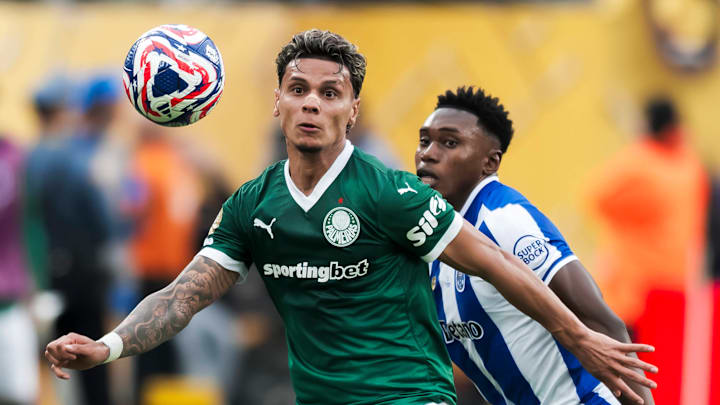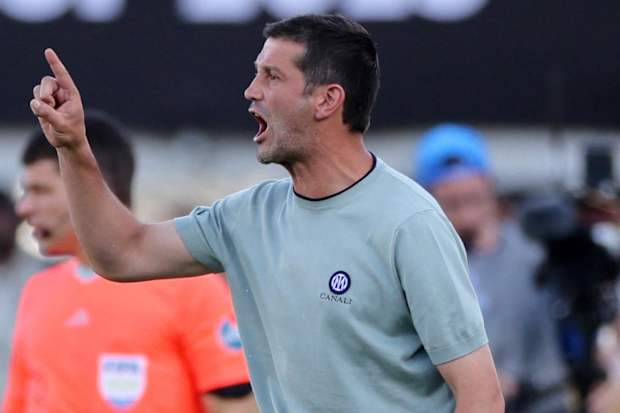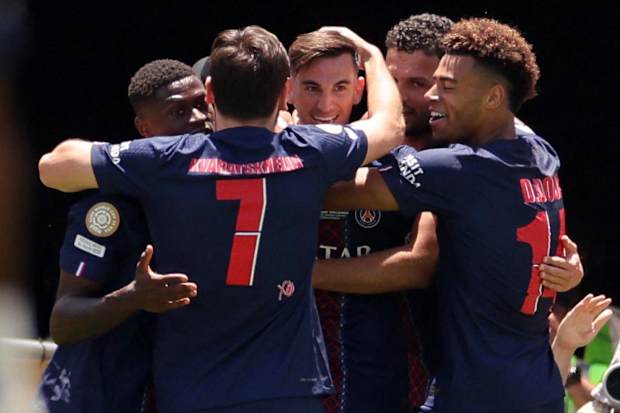PSG Dominates as Powerhouse While CONMEBOL Challenges UEFA's Supremacy in Club World Cup's Explosive Start

The Club World Cup has commenced with tremendous momentum, as all participating teams have completed their inaugural matches in this summer's prestigious tournament.
The opening five days of this revamped international club competition have been filled with excitement, generating numerous captivating narratives already.
Crowd turnout, weather conditions, and field surface criticisms have dominated the first matchweek discussions. Nevertheless, focusing purely on the on-field action, the Club World Cup has exceeded expectations thus far. Outstanding displays, surprising results, and abundant excitement have characterized the competition, with the quality of play expected to elevate further as the tournament matures.
The tournament's inaugural matchday provided abundant material for examination. Here are Sports Illustrated's key observations from the Club World Cup's opening fixtures.
South American Teams Demonstrate Their Competitive Edge

Anyone expecting the 12 European representatives in the Club World Cup to cruise effortlessly into the elimination phase was severely mistaken.
Each of the three encounters between Conmebol and UEFA representatives during the competition's opening matchweek concluded in stalemates. Collectively, UEFA teams maintained a marginal advantage with 53% possession throughout these three contests. Nevertheless, Conmebol clubs exceeded their European counterparts in shot attempts 41 to 26, while also leading in shots on goal 12 to nine.
Despite entering the Club World Cup following a disappointing 2025 campaign, Boca Juniors nearly defeated Benfica, forcing the Portuguese team to rely on a crucial late header from Nicolás Otamendi to recover from a two-goal deficit and secure a draw. Palmeiras created numerous opportunities to overcome Porto in their tournament opener, while Fluminense demonstrated superior overall play compared to Borussia Dortmund, yet both Brazilian teams ultimately earned single points. The remaining Conmebol representatives secured victories in their opening encounters.
While top European clubs remain heavily favored to claim the championship, South American teams have proven their ability to compete admirably against their UEFA rivals. Brazilian clubs particularly appear formidable, reinforcing why their domestic league is regarded as the continent's finest.
With most of the tournament remaining, the first official victory by a Conmebol club over a UEFA opponent in more than ten years seems inevitable. Should South American teams maintain their impressive form, they will present significant challenges for any opponent during the knockout stages.
European Powerhouses Face Difficulties Under New Leadership

Real Madrid and Inter Milan both accepted 1–1 draws to begin the Xabi Alonso and Cristian Chivu tenures respectively.
This marked Chivu's inaugural match leading Inter following Simone Inzaghi's exit after the devastating 5-0 Champions League final loss to PSG. A victory against Liga MX's Monterrey would have provided an ideal foundation for a fresh beginning and helped move past recent disappointments.
Unfortunately, the Nerazzurri failed to deliver an impressive performance, settling for a draw that could have resulted in defeat, as Monterrey wasted a clear scoring opportunity during injury time. While certain key players were unavailable, failing to overcome a Liga MX opponent after being among Europe's elite teams in 2024–25 can only be characterized as disappointing. Chivu faces considerable challenges ahead to ensure Inter meets the high expectations established before the tournament began.
Likewise, Real Madrid encountered difficulties during Xabi Alonso's much-anticipated debut, achieving only a draw against Saudi Pro League team Al Hilal. Although Al Hilal possesses a talented roster, the concerning aspect is that Los Blancos appeared remarkably similar to the unconvincing team that characterized Carlo Ancelotti's final season as manager.
While it's premature to evaluate both managers and their new squads given their brief tenure of less than a month, it's difficult not to feel disappointed by the debut performances of these two major European clubs that entered the tournament aspiring to claim the championship trophy.
PSG Establish Themselves as the World's Premier Club

Prior to the Club World Cup's commencement, many highlighted Paris Saint-Germain versus Atlético Madrid as the group stage's premier matchup. What was anticipated to be a heavyweight clash between two elite European teams became a complete mismatch.
The recently crowned Champions League champions fielded a lineup missing only Ousmane Dembélé from the XI that started in the European final in Munich. The outcome? A devastating 4–0 demolition of Diego Simeone's Atlético Madrid, controlling every aspect of the match while conceding just one shot on target.
Certainly, Bayern Munich's 10-goal triumph over Auckland City FC was remarkable, but considering the opponent's quality, PSG's debut performance must be viewed as a more significant achievement.
For those who believed the Parisians might struggle in this tournament following their treble-winning season, the performance against Atleti answered all doubts. It served as a clear message to every other competitor, definitively demonstrating why they're currently the world's best team and the favorites to claim the title on July 23.
